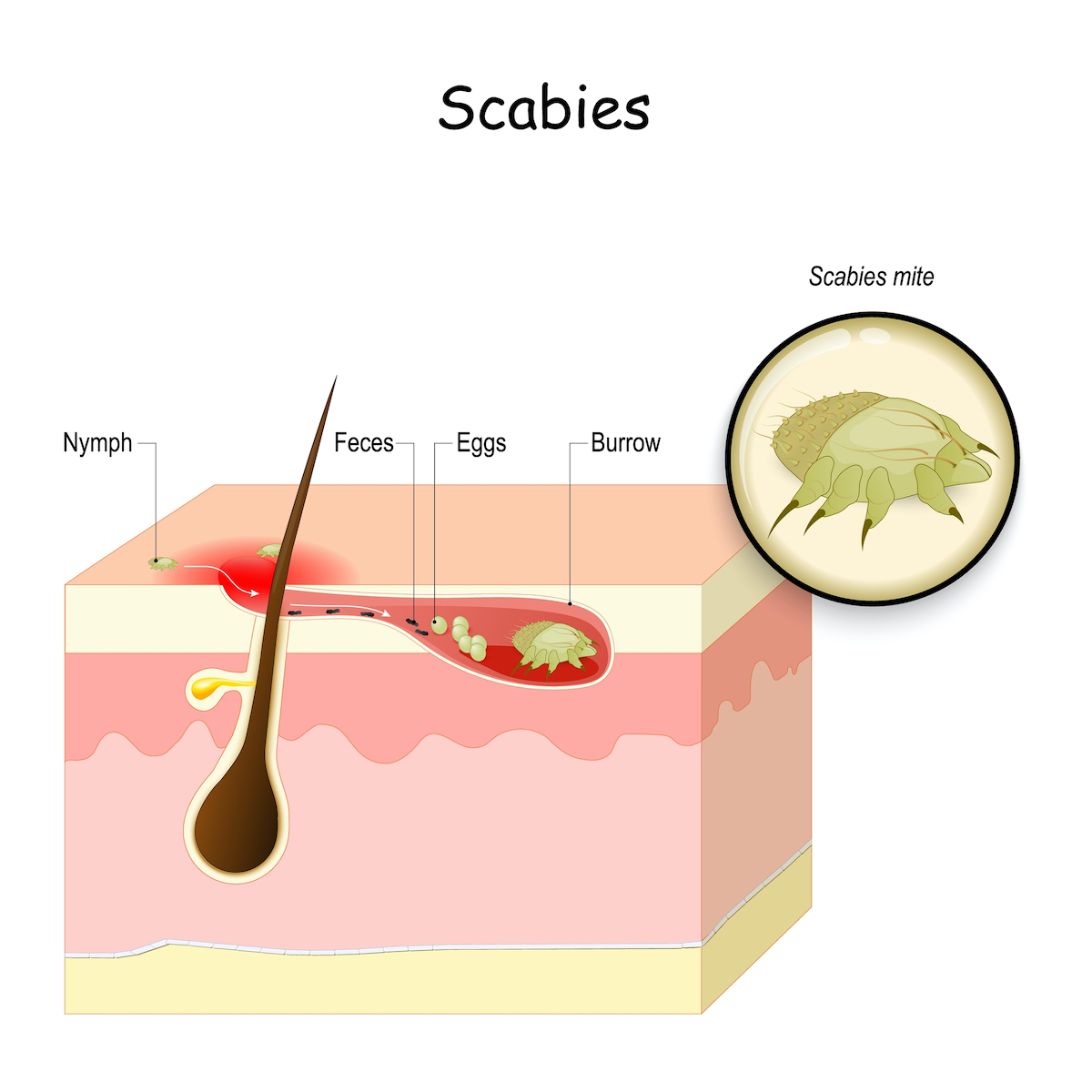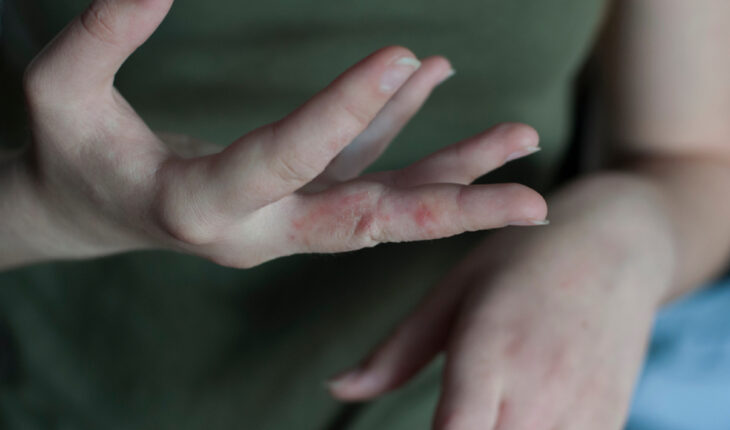Nowadays, many people in our country suffer from skin problems, for example, Psoriasis and (severe) eczema. Another well-known skin problem that affects people at all levels of society is scabies. In case you’re not familiar with scabies, then let me enlighten you: this skin problem is highly contagious and causes you to be incredibly itchy – almost all the time. A lot of skin problems cause itching, so it’s important to be well-informed about this. What is scabies, how can you get it, what are the symptoms, and most importantly, is there a way to treat it? We’ve listed all the information for you, go check it out…

What is Scabies?
Before we explain to you how you can get scabies, what the symptoms are and how you can treat it, it’s important to know what this skin problem actually is. We already explained that it’s a (very) itchy skin condition. This dermatological condition is caused by a minuscule creature called Sarcoptes scabiei, which is an eight-legged mite that loves to nest into the top layer of your skin. When female mites nest in the skin layer, they lay eggs. So this is where your skin reacts by becoming red and incredibly itchy.
What Causes Scabies?
Scabies is highly contagious and spread from person to person via physical contact, which makes this the most common way to get scabies, but there are other ways as well. You can also get infected with this skin problem if you have not been in close contact with other people. These mites can also spread via infected furniture, bedding, and clothing. This makes schools (classrooms), daycares, households, prisons, and (long-term care) nursing homes the most common places where scabies breaks out.
Non-hygienic conditions
It can also happen that you get it without being infected by anyone. This is because you can also get it if you live (for an extended period) in non-hygienic conditions, think of non-hygienic places abroad or dirty (student) houses. That’s why it’s super important to recognize the symptoms and get treatment because you don’t want to infect others – most likely your loved ones – with this skin condition. What the symptoms and treatment options are? Go check them out on the next page.

